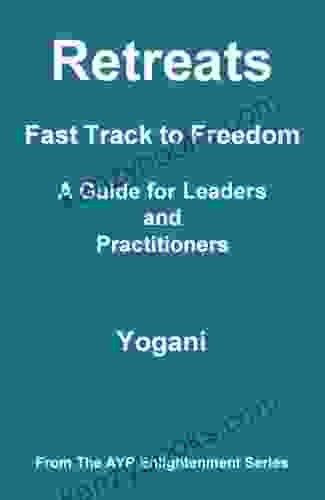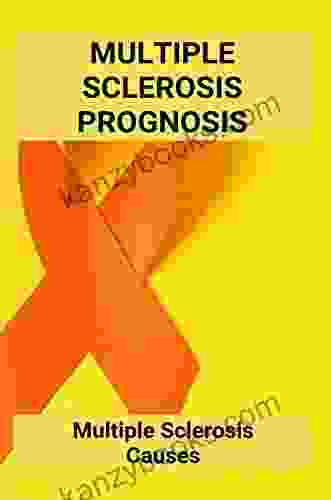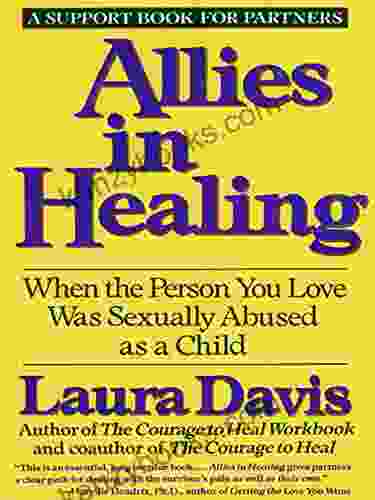When The Person You Love Is A Survivor Of Child Sexual Abuse: A Comprehensive Guide to Supporting Survivors and Their Loved Ones

Child sexual abuse is a prevalent and devastating issue that can have lifelong consequences for survivors. Understanding the complexities of this trauma and providing compassionate support is crucial for loved ones. This comprehensive guide offers a roadmap to recovery and healing, empowering you to assist survivors with sensitivity, understanding, and unwavering support.
Understanding the Trauma of Child Sexual Abuse
Defining Child Sexual Abuse
4.6 out of 5
| Language | : | English |
| File size | : | 549 KB |
| Text-to-Speech | : | Enabled |
| Screen Reader | : | Supported |
| Enhanced typesetting | : | Enabled |
| Word Wise | : | Enabled |
| Print length | : | 410 pages |
Child sexual abuse encompasses any sexual act or behavior involving a minor under the age of consent. It includes a wide range of offenses, from inappropriate touching to sexual intercourse, and can occur in various settings, including homes, schools, and institutions.
Impact on Survivors
The effects of child sexual abuse are profound and can manifest in both physical and psychological symptoms. Survivors may experience depression, anxiety, PTSD, substance abuse, and relationship difficulties. They may also struggle with feelings of shame, guilt, and self-blame, which can further compound the trauma.
Supporting Survivors with Compassion and Sensitivity
Establishing a Supportive Environment
Creating a safe and supportive environment is paramount for survivors. Listen attentively to their experiences without judgment or interruption. Let them know that you believe them and that you are there for them unconditionally. Respect their boundaries and provide space when needed.
Understanding Triggers and Reactions
Survivors may experience triggers that evoke overwhelming emotions or physical reactions. These triggers can be specific individuals, places, or situations. Be aware of potential triggers and develop coping mechanisms to support survivors in managing these reactions.
Seeking Professional Help
Encouraging survivors to seek professional help is essential for their recovery. Therapy can provide a safe and confidential space to process the trauma, develop coping skills, and address underlying emotional issues. Connect survivors with qualified therapists who specialize in treating childhood sexual abuse.
Navigating Relationships with Survivors
Building Trust
Trust is a cornerstone of any relationship, particularly with survivors of child sexual abuse. Be patient and understanding, and avoid making promises you cannot keep. Be consistent in your actions and demonstrate your trustworthiness through your words and behaviors.
Respecting Boundaries
Survivors have the right to establish and maintain their own boundaries. Respect their need for privacy, space, and control over their bodies. Do not push them into situations that make them uncomfortable or retraumatize them.
Supporting Recovery and Growth
Recovery from child sexual abuse is a journey, not a destination. Support survivors in their efforts to heal and grow. Encourage them to engage in self-care practices, pursue their interests, and seek support from others who understand their experiences.
Addressing the Impact on Loved Ones
Supporting a loved one who has experienced child sexual abuse can be emotionally challenging. It is important to acknowledge and address the impact on your own well-being.
Seeking Support for Yourself
Caring for a survivor can be emotionally and mentally draining. Seek support from family, friends, or a therapist to process your own emotions and maintain your own mental health.
Understanding Secondary Trauma
Secondary trauma refers to the emotional distress experienced by individuals who are exposed to the traumatic experiences of others. Recognize the potential for secondary trauma and take steps to mitigate its effects on your own well-being.
Breaking the Cycle of Abuse
Child sexual abuse is a social problem that requires collective action. Preventing future abuse and supporting survivors are moral and ethical imperatives.
Educating Children
Empower children with knowledge about child sexual abuse, healthy boundaries, and safe reporting mechanisms. Talk to them openly and age-appropriately about these issues, fostering an environment where they feel comfortable speaking up if they are ever victimized.
Challenging Stigma
Stigma surrounding child sexual abuse prevents survivors from seeking help and perpetuates a culture of silence. Challenge negative attitudes and stereotypes associated with abuse. Educate your community and advocate for policies that support survivors and prevent future harm.
Supporting Survivors
Continue to support survivors throughout their recovery journey and beyond. Listen to their stories, believe in their resilience, and empower them to thrive. By standing with survivors, we create a society where they are heard, respected, and valued.
Supporting a loved one who has survived child sexual abuse is a transformative experience. With understanding, compassion, and unwavering support, you can empower them to heal and rebuild their lives. Remember that recovery is possible, and that you play a vital role in creating a more just and supportive world for survivors and their loved ones.
This comprehensive guide provides a roadmap to navigate the complexities of child sexual abuse and its impact on survivors and loved ones. By embracing the principles outlined in this book, you can become a beacon of hope and support, guiding the way towards healing, recovery, and justice.
4.6 out of 5
| Language | : | English |
| File size | : | 549 KB |
| Text-to-Speech | : | Enabled |
| Screen Reader | : | Supported |
| Enhanced typesetting | : | Enabled |
| Word Wise | : | Enabled |
| Print length | : | 410 pages |
Do you want to contribute by writing guest posts on this blog?
Please contact us and send us a resume of previous articles that you have written.
 Book
Book Novel
Novel Page
Page Chapter
Chapter Text
Text Story
Story Genre
Genre Reader
Reader Library
Library Paperback
Paperback E-book
E-book Magazine
Magazine Newspaper
Newspaper Paragraph
Paragraph Sentence
Sentence Bookmark
Bookmark Shelf
Shelf Glossary
Glossary Bibliography
Bibliography Foreword
Foreword Preface
Preface Synopsis
Synopsis Annotation
Annotation Footnote
Footnote Manuscript
Manuscript Scroll
Scroll Codex
Codex Tome
Tome Bestseller
Bestseller Classics
Classics Library card
Library card Narrative
Narrative Biography
Biography Autobiography
Autobiography Memoir
Memoir Reference
Reference Encyclopedia
Encyclopedia Miranda Gray
Miranda Gray Sue Kientz
Sue Kientz Mimi Aye
Mimi Aye Todd Roll
Todd Roll Tony Nader
Tony Nader Susan Harris
Susan Harris Sue Murray
Sue Murray Shannon Ethridge
Shannon Ethridge Sylvie Beljanski
Sylvie Beljanski Tracy Disabato Aust
Tracy Disabato Aust Sarah Crockett
Sarah Crockett Ulrike Baumgartner
Ulrike Baumgartner Victoria Tsai
Victoria Tsai Shifu Lin
Shifu Lin Sarvinder Naberhaus
Sarvinder Naberhaus Tasha N Dubriwny
Tasha N Dubriwny Howexpert Press
Howexpert Press Theresa Bane
Theresa Bane Sonia Ray
Sonia Ray Stephanie Redfern
Stephanie Redfern
Light bulbAdvertise smarter! Our strategic ad space ensures maximum exposure. Reserve your spot today!

 Federico García LorcaRetreats: Your Fast Track to Freedom - The Ultimate Guide for Leaders and...
Federico García LorcaRetreats: Your Fast Track to Freedom - The Ultimate Guide for Leaders and... Fred FosterFollow ·6.5k
Fred FosterFollow ·6.5k Jules VerneFollow ·14.9k
Jules VerneFollow ·14.9k William GoldingFollow ·15.2k
William GoldingFollow ·15.2k Anthony BurgessFollow ·18.5k
Anthony BurgessFollow ·18.5k Eli BlairFollow ·17.8k
Eli BlairFollow ·17.8k Rick NelsonFollow ·14.2k
Rick NelsonFollow ·14.2k Nathaniel PowellFollow ·15.6k
Nathaniel PowellFollow ·15.6k Tony CarterFollow ·6.1k
Tony CarterFollow ·6.1k

 Virginia Woolf
Virginia WoolfGetting High Fat Diet Easily Using Keto Fat Bomb Cookbook
Unveiling the Power of Fat...

 Milan Kundera
Milan KunderaAre You Cryin' Brian? Find the Inspiration and Humor in...
Life can be full of...

 Edmund Hayes
Edmund HayesUnlock Your Vitality: The 15-Day Natural Energy Boost...
Are You Ready to...

 Gavin Mitchell
Gavin MitchellMultiple Sclerosis Life Expectancy: Unveiling the Impact...
Multiple Sclerosis (MS) is a...

 Gabriel Garcia Marquez
Gabriel Garcia MarquezGet The Thighs That Can Crack Man Head Like Walnut
Are you tired of weak, flabby...
4.6 out of 5
| Language | : | English |
| File size | : | 549 KB |
| Text-to-Speech | : | Enabled |
| Screen Reader | : | Supported |
| Enhanced typesetting | : | Enabled |
| Word Wise | : | Enabled |
| Print length | : | 410 pages |












